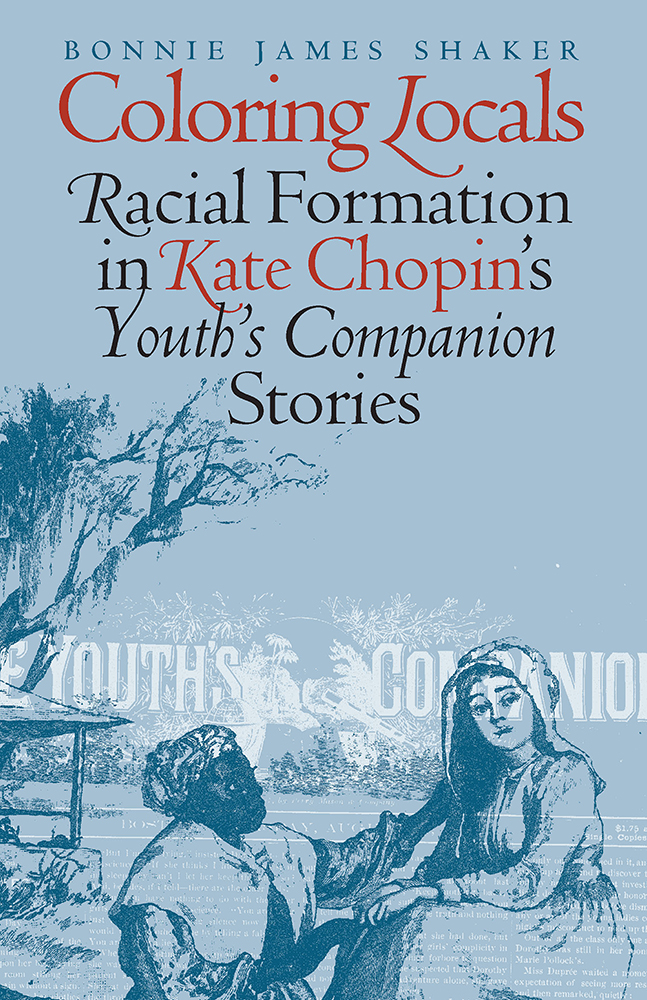Coloring Locals examines how the late nineteenth-century politics of gender, class, race, and ethnicity influenced Kate Chopin's writing for the major family periodical of her time.
Chopin's canonical status as a feminist rebel and reformer conflicts with the fact that one of her most supportive publishers throughout her life was the Youth's Companion, a juvenile periodical whose thoroughly orthodox “family values” contributed to its success as the longest-running and, at one time, most widely circulating periodical in nineteenth-century America. Not surprisingly, Chopin’s Youth’s Companion stories differ from her canonical texts in that they embrace and advance ideals of orthodox white femininity and masculinity. Rather than viewing these two representations as being at odds with each other, Bonnie Shaker asserts that Chopin's endorsement of conventional gender norms is done in the service of a second political agenda beyond her feminism, one that can help the reader appreciate nuances of identity construction previously misunderstood or overlooked in the body of her work.
Shaker articulates this second agenda as “the discursive act of coloring locals,” the narrative construction of racial difference for Louisiana peoples of African American, Native American, and French American ancestry. For Chopin, “coloring locals” meant transforming non-Louisianans’ general understanding of the Creole and Cajun as mixed-race people into “purely” white folks, this designation of whiteness being one that conferred not only social preferment but also political protections and enfranchisement in one of the most racially violent decades of U.S. history. Thus, when Chopin is concerned with coloring her beloved Louisiana Creoles and Cajuns “white,” she strategically deploys conventional femininity for the benefits it affords as a sign of middle-class respectability and belonging.
Making significant contributions both to the scholarship on Kate Chopin and on race and gender construction, this sophisticated study will be of great interest to scholars and students of nineteenth-century ethnic and cultural studies as well as Chopin scholars.
“In Coloring Locals, Bonnie James Shaker brings Kate Chopin’s Youth’s Companion stories out of the shadows to which they are usually consigned, showing how they illuminate an important aspect of Chopin’s social and racial attitudes as well as her continuing determination to publish her work after the seeming fiasco of The Awakening’s reception. Shaker thus offers a welcome new dimension to Chopin studies, to our understanding of the complexities of ‘local color,’ and to the growing professional ambition of women writers at the dawn of the twentieth century.”—Elizabeth Fox-Genovese, Eleanore Raoul Professor of the Humanities, Emory University
“Shaker’s volume is an important contribution to both Chopin criticism and to the growing field of race research known as whiteness studies.”—Choice

